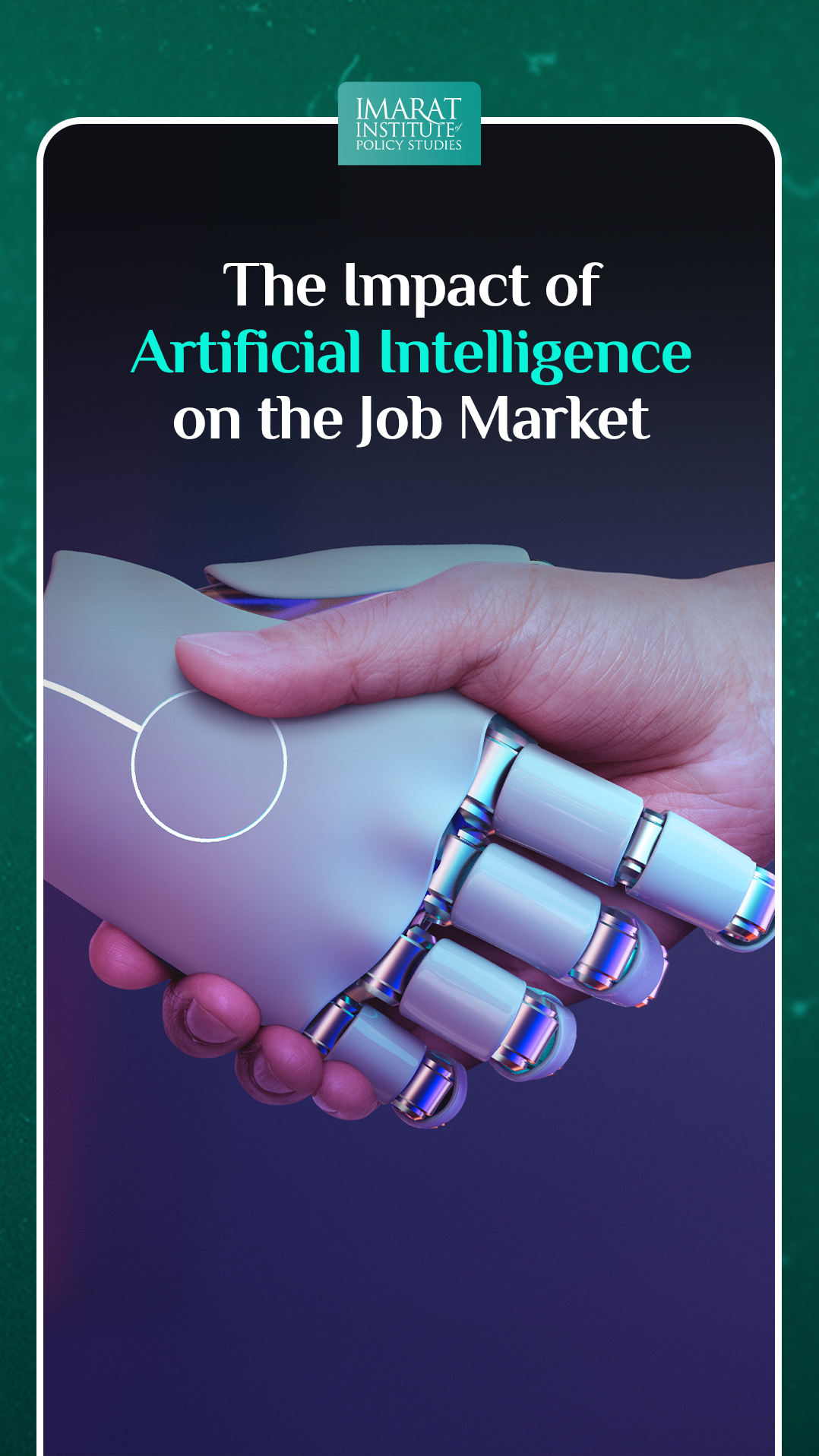In recent years, the rapid advancement of artificial intelligence (AI) and automation technologies has been reshaping industries and transforming the global job market. While AI offers numerous benefits such as increased efficiency and productivity, it also presents challenges, particularly in terms of employment. As automation continues to evolve, it is essential for individuals and organizations to understand its impact on the job market and proactively adapt to the changing landscape. Thus, it is essential to ensure that the benefits are equitably distributed and that no one is left behind in the transition to an AI-driven economy. Through proactive adaptation and collective efforts, one can harness the power of AI to create a more inclusive, innovative, and prosperous future for all.
What is the Impact of AI on Jobs?
Artificial intelligence, including machine learning and robotics, has the potential to automate various tasks across different sectors, ranging from manufacturing and logistics to healthcare and finance. Jobs that involve repetitive, routine tasks are particularly susceptible to automation. Tasks such as data entry, customer service, and assembly line work can be efficiently performed by AI systems, leading to concerns about job displacement and unemployment.
However, it is important to recognize that the impact of AI on the job market is not solely negative. While some jobs may be automated, new opportunities are also emerging as a result of technological advancements. Roles that require creativity, critical thinking, emotional intelligence, and human interaction are less likely to be automated. Additionally, AI creates demand for specialized skills such as data analysis, programming, and AI development, leading to the creation of new job roles and industries. Following are some of the ways AI is impacting the job market.
Automation and Efficiency
AI generates demand for new job roles requiring specialized skills like data analysis, machine learning, and AI development. It also automates routine tasks, enhancing efficiency and productivity in various industries. This automation can potentially displace jobs involving manual labor or predictable activities. While some jobs may be displaced, new opportunities emerge in sectors experiencing AI-driven growth.
Skill Shift and Upskilling
AI drives a shift in skill requirements, with increasing demand for technical skills such as programming and data analysis. There is a need for workforce upskilling to adapt to the changing job market demands. Also, AI complements human workers, augmenting their capabilities and improving overall outcomes. Thus, collaboration between humans and AI systems becomes essential for maximizing productivity.
Impact on Industries and Decision-Making
AI transforms industries by fostering innovation and introducing new business models, products, and services. It enables data-driven decision-making, enhancing accuracy and effectiveness across various domains. Moreover, AI redefines the nature of work, emphasizing tasks requiring human creativity, critical thinking, and interpersonal skills. Despite new job creation, concerns about job displacement and unemployment persist, especially in sectors facing significant automation.
Education and Training Adaptation
Integration of AI in the job market necessitates updates in education and training programs to equip individuals with the necessary technical and soft skills. Lifelong learning becomes crucial for staying relevant and adaptable in an AI-driven economy.
Strategies for Adapting to Automation
To thrive in a job market influenced by automation, individuals and organizations must adapt and embrace change. Here are some strategies for navigating the impact of AI on the job market:
Lifelong Learning
With technology constantly evolving, continuous learning is essential for staying relevant in the workforce. Individuals should invest in acquiring new skills and knowledge that are in demand, such as data analysis, programming, and digital literacy. Online courses, certifications, and professional development programs can help individuals upskill and reskill for emerging roles.
Embracing Creativity and Innovation
While automation can handle routine tasks, it cannot replicate human creativity and innovation. Individuals should focus on developing skills that are uniquely human, such as problem-solving, creativity, and innovation. By leveraging these skills, individuals can find new opportunities and contribute value in an increasingly automated world.
Collaborating with AI
Rather than viewing AI as a threat, individuals can leverage it as a tool to enhance their productivity and effectiveness. Collaborating with AI systems can streamline workflows, automate repetitive tasks, and enable individuals to focus on higher-level strategic activities. By embracing AI as a partner rather than a competitor, individuals can augment their capabilities and achieve better outcomes.
Cultivating Adaptability and Resilience
The job market is dynamic, and change is inevitable. Individuals must cultivate adaptability and resilience to thrive in an uncertain environment. This involves being open to new opportunities, embracing challenges, and continuously evolving to meet the demands of the evolving job market.
Fostering a Culture of Lifelong Learning
Organizations play a crucial role in supporting their employees’ growth and development in the face of automation. Employers should prioritize investing in employee training and development programs that equip workers with the skills needed to succeed in an AI-driven economy. Additionally, fostering a culture of innovation and lifelong learning can empower employees to embrace change and contribute to the organization’s success.
Conclusion
The impact of artificial intelligence on the job market is profound and multifaceted, presenting both challenges and opportunities for individuals and organizations. By understanding the evolving nature of work and proactively adapting to automation, individuals can position themselves for success in a rapidly changing job market. Embracing lifelong learning, creativity, collaboration, adaptability, and resilience are key strategies for navigating the impact of AI on the future of work.
This article is written by Haneen Gul. Haneen is a research analyst at the Iqbal Institute of Policy Studies (IIPS).



Leave a Reply